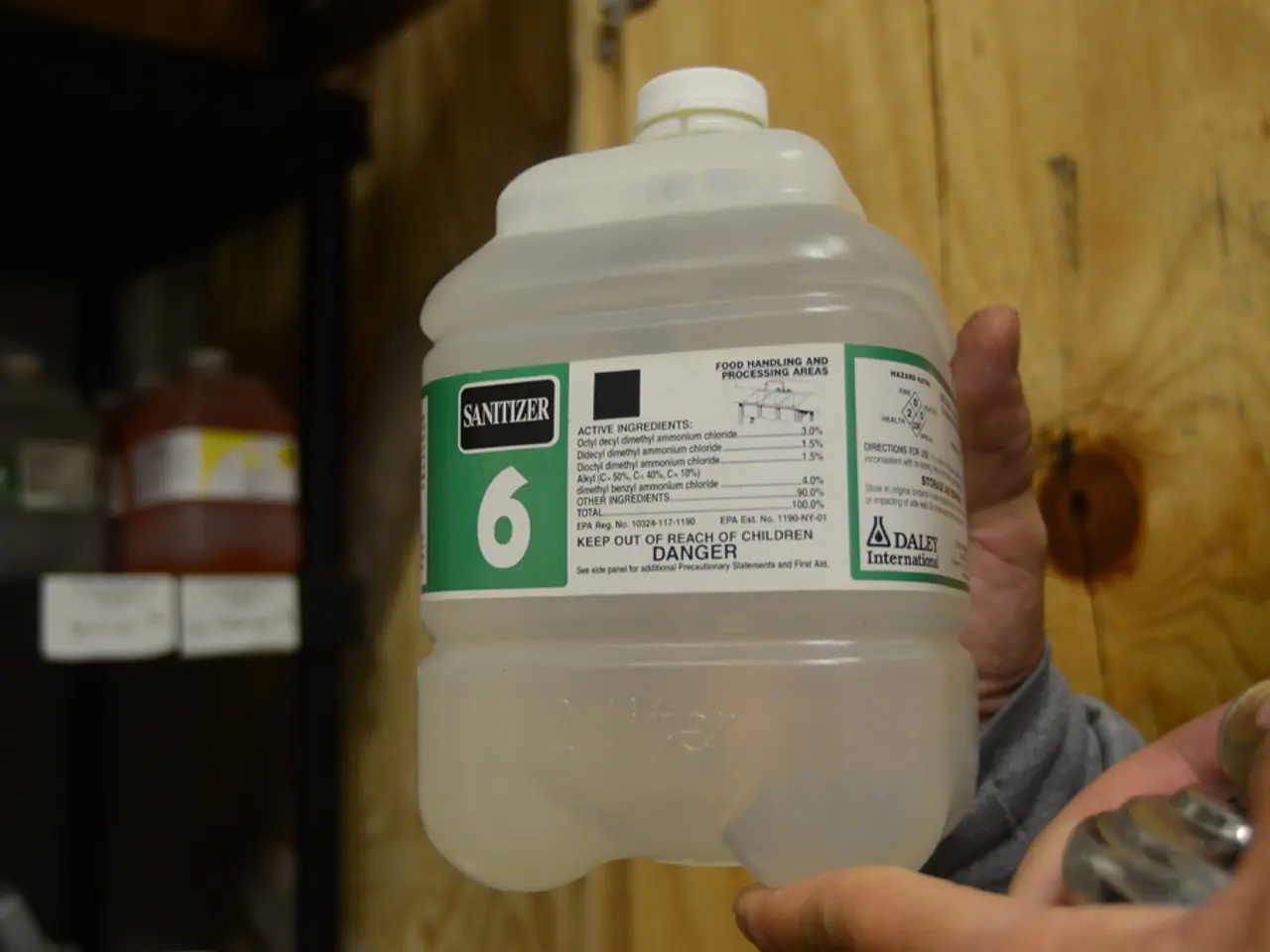Federal funding reductions pose a threat to the continuity of a health program designed to aid individuals afflicted by illnesses linked to the 9/11 attacks.
In the Shadow of the Twin Towers: Struggles of the World Trade Center Health Program
Two decades on from the tragic collapse of the Twin Towers and the debilitating dust cloud enveloping lower Manhattan, the number of people grappling with 9/11-related health issues continues to grow. The World Trade Center Health Program (WTC Health Program) has served as the primary lifeline for those exposed to the toxic fumes, offering treatment for a variety of conditions, including cancer, asthma, and PTSD.
As of December, the program counts over 130,000 individuals, with 64% diagnosed with at least one condition linked to 9/11, making cancer the most prevalent ailment, affecting over 40,000 members [1]. The WTC Health Program also provides annual screenings, which can help detect illnesses in the future for those who join for this purpose.
In recent months, the program has confronted turbulence as staffing has seen a series of cuts. This unsettling scenario began with the Trump administration's controversial dismissal of probationary workers in February, with a subsequent reinstatement only to face termination again last month [1]. These repeated changes have left the WTC Health Program in disarray, causing complications for enrolling new members and guaranteeing that their treatment is covered by federal funding [2].
Critics warn that these staffing reductions could cause significant delays in treatment, diagnosis, and detection of diseases, potentially costing lives [2]. Todd Cleckley, a nurse medical specialist at Barasch & McGarry, highlights the precarious situation: "The health program already operated on a very slim staffing margin. We're only beginning to see what those negative impacts will be."
Roughly 16 staffers from the WTC Health Program fell victim to the Trump administration's mass firing of probationary workers in February. Although the positions were reinstated following widespread outcry from both Republican and Democratic lawmakers in Congress, the staff were again laid off in late March [2]. Banishing essential staff can have severe consequences for the WTC Health Program, as Michael Chevat, executive director of 9/11 Health Watch, emphasizes: "They weren't on the World Trade Center Program payroll, but they did things that are essential to the program running."
New York City Mayor Eric Adams has voiced his concerns about the situation: "New York City is dedicated to providing quality health care to the heroes who responded on 9/11 and the survivors of the most tragic day in America's history." Adams has reached out to the federal government to restore these essential resources [3].
Before the staffing cuts, 9/11 responders and affected individuals could typically join the program within weeks of applying. However, Chevat highlights that no new members have been enrolled since April 1. On average, the program usually enrolls approximately 200 people per month.
Under the WTC Health Program, people receive annual screenings at certified health clinics, which are primarily located in the New York area. During these evaluations, experts examine patients for a range of mental and physical illnesses linked to 9/11 [4]. If a doctor determines a tie between an individual's condition and the disaster, paperwork must be submitted to federal employees for certification. The WTC Health Program covers the costs of treatment once federal funding is certified. Approximately 8,200 cancer diagnoses were certified in 2021 [4].
It is evident that the delays caused by staffing cuts can have dire consequences for people who were exposed to toxic dust and debris. Many cancers diagnosed subsequently must be treated immediately.
"You'll never hear me say something inflammatory just to make a headline, but it is a fact: People will die because of these decisions." Michael Barasch, a partner at Barasch & McGarry, stresses the gravity of the situation.
The Twin Towers collapse released carcinogenic substances like asbestos, benzene, and dioxins, which lingered in the air for days to weeks [6]. A 10-year study found an elevated risk of leukemia, prostate, and thyroid cancers among rescue and recovery workers who responded to the disaster. Other cancers, like lung cancer and mesothelioma, may develop decades after asbestos exposure, implying future diagnoses [7].
Michael O'Connell, who played a crucial role in search-and-rescue operations after 9/11, recalls the ordeal: "We were breathing in glass and asbestos and everything else that you could imagine. We slept in it, we ate in it, we bled in it. We didn't leave it. We were in that zone for almost nine months." In the following years, he was diagnosed with a rare inflammatory disease—sarcoidosis—that caused his joints and skin significant pain. With the help of the WTC Health Program, O'Connell managed his symptoms. Thoughts of the possibility that new members may be denied the opportunity to enroll or receive treatment weigh heavily on him.
The crisis facing the World Trade Center Health Program is not only due to staffing cutbacks. The program already wrestled with budget constraints before the layoffs. In December, Congress failed to include a long-term funding package for the program in a bipartisan spending deal. By 2028, the shortfall might force the program to shut down enrollment or scale back treatment for current members [5].
Recommended:Health news### Health newsU.S. news### U.S. news- Fluoride ban looms in Florida.- Ozempic lawsuit: Maryland man with diabetes suffers vision loss.
Enrichment Data: The World Trade Center Health Program, which offers medical services to 9/11 responders and survivors, is experiencing significant challenges due to staffing shortages. The following points provide insight into the current status of the program and potential implications for treatment and enrollment:
- Staff Reductions: The program has encountered substantial staffing reductions, resulting in over 870 positions being eliminated, including that of the program director[5]. Although the director was reinstated on April 5 following public pressure, this situation leaves the program undermanned.
- NIOSH Reductions: The National Institute for Occupational Safety and Health (NIOSH) oversees the program, and it is expecting a two-thirds reduction in its workforce. Although the WTC Health Program itself has not experienced direct layoffs, these NIOSH cuts will impact crucial services such as medical evaluations and application processing.
- The World Trade Center Health Program (WTC Health Program) currently faces funding challenges, with Congress failing to include a long-term funding package in a recent bipartisan spending deal.
- By 2028, the shortfall might force the program to shut down enrollment or scale back treatment for current members.
- In addition to budget concerns, the WTC Health Program has encountered significant staffing reductions, leading to a potential increase in delays in treatment, diagnosis, and detection of diseases.
- Todd Cleckley, a nurse medical specialist at Barasch & McGarry, warns that these staffing reductions could have severe consequences for the WTC Health Program.
- Critics argue that these staffing reductions could cause significant delays in treatment, diagnosis, and detection of diseases, potentially costing lives.
- Approximately 8,200 cancer diagnoses were certified in 2021 under the WTC Health Program.
- Many cancers diagnosed subsequently must be treated immediately, and delays in treatment can have dire consequences for people who were exposed to toxic dust and debris.
- The Twin Towers collapse released carcinogenic substances like asbestos, benzene, and dioxins, which lingered in the air for days to weeks.
- Michael O'Connell, who played a crucial role in search-and-rescue operations after 9/11, was diagnosed with a rare inflammatory disease—sarcoidosis—that caused him significant joint and skin pain.
- The staff reductions have left the WTC Health Program in disarray, causing complications for enrolling new members and guaranteeing that their treatment is covered by federal funding.
- New York City Mayor Eric Adams has voiced his concerns about the situation, stating that New York City is dedicated to providing quality health care to the heroes who responded on 9/11 and the survivors of the most tragic day in America's history.
- The WTC Health Program provides treatment for a variety of conditions, including cancer, asthma, and PTSD.
- Roosevelt Hospital, a member site of the WTC Health Program, specializes in treating chronic diseases, such as diabetes, cardiovascular diseases, and respiratory conditions, among others.
- The WTC Health Program also offers support for mental health, providing treatment for conditions like depression, anxiety, and PTSD, which are common among responders and survivors.
- Men's Health NYC, another member site of the WTC Health Program, focuses specifically on men's health needs, offering services related to prostate cancer screenings, cardiovascular health, and sexual health.
- The WTC Health Program also offers fitness and exercise programs to promote overall health and wellness.
- Nutrition plays a vital role in maintaining health, and the WTC Health Program addresses this need by providing resources for healthy eating and weight management.
- Eye-health and hearing services are essential components of the WTC Health Program, and members have access to these services at designated clinics.
- WomensHealthNYC, a member site of the WTC Health Program, provides comprehensive women's health services, including birth control, pregnancy care, breast cancer screenings, and menopause management.
- The WTC Health Program also offers therapies and treatments for various skin conditions, as well as general medical care for a wide range of illnesses and diseases.








